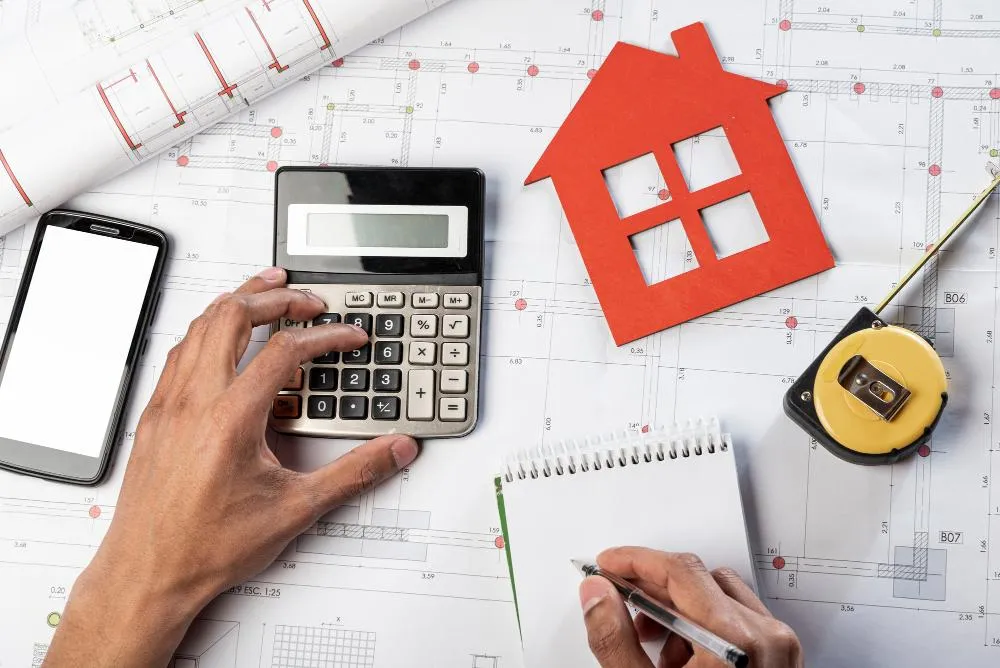ARTICLES
Why Hire A Property Management Company
ARTICLES
Why Hire A Community Management Company

Real Estate Taxes Vs. Property Taxes: What's the Difference?
Taxes are an unavoidable responsibility when it comes to owning property. However, many property owners find themselves confused when they see terms like "real estate taxes" and "property taxes.”
While they share similarities, these two kinds of taxes have distinct meanings, applications, and implications. Knowing the difference between real estate taxes and property taxes can help homeowners, investors, and businesses make informed financial decisions.
This article explores the definitions, differences, functions, calculation methods, impacts on property value and equity, and strategies for efficiently managing these taxes.
Understanding Real Estate Taxes and Property Taxes
Real Estate Taxes: Definition and Scope
What are real estate taxes? Real estate taxes are taxes imposed on immovable property, meaning land and any structures permanently attached. This includes:
Residential homes
Apartments and condos
Industrial properties
Agricultural land
Local governments (cities, counties, and municipalities) assess real estate taxes annually based on a property's assessed value.
The funds collected from real estate taxes help finance public services such as schools, road maintenance, law enforcement, and emergency services.
Property Taxes: A Broader Term
Property taxes, on the other hand, encompass both real estate and personal property. While real estate taxes apply only to land and buildings, property taxes include personal property and movable assets not permanently attached to land.
Examples of taxable personal property include:
Vehicles (cars, motorcycles, boats)
Machinery and equipment
Business inventory
Mobile homes (if the owner does not own the land)
Personal property taxes vary by jurisdiction. Some states impose personal property taxes on business equipment and vehicles, while others limit taxation to real estate.
Difference Between Property Tax and Real Estate Tax
Are real estate taxes the same as property taxes? No, although real estate taxes are a subset of property taxes, the distinction between the two is significant. Below are the fundamental differences:
How These Taxes Are Determined and Collected

How Real Estate Taxes Work
Real estate taxes are determined through a multi-step process:
Property Valuation: A tax assessor evaluates a property's market value based on its location, size, improvements, and comparable sales.
Assessment Ratio Applied: Some jurisdictions apply an assessment percentage to determine the taxable value. (For example, if the fair market value of a home is $350,000 and the assessment percentage is 65%, the taxable value is $227,500.)
Tax Rate Applied: The local government assigns a tax rate, often expressed in mills (one mill equals $1 for every $1,000 assessed value).
Calculation of Taxes: The tax owed is determined by multiplying the assessed value by the tax rate.
Billing and Collection: Property owners receive a tax bill and must pay it by the due date to avoid penalties.
Example Calculation:
Fair market value: $350,000
Assessment percentage: 65%
Assessed value: $227,500
Local tax rate: 2% (20 mills)
Tax bill: $227,500 × 0.02 = $4,550 per year
How Personal Property Taxes Work
Personal property taxes are assessed differently, especially for businesses and vehicles:
Inventory and Asset Reporting: Businesses may be required to list taxable personal property.
Depreciation Consideration: Unlike real estate, personal property loses value over time, affecting the tax assessment.
Taxation Based on Type: Vehicles are often taxed based on registration, while business equipment is taxed based on usage and depreciation.
For example, a commercial truck purchased for $50,000 might depreciate annually, reducing its taxable value yearly.
Impact on Property Value and Equity
Effect on Property Value
High real estate taxes can lower property value because potential buyers consider tax costs when determining affordability. Conversely, well-maintained infrastructure and schools (funded by taxes) can enhance property values by making an area more desirable.
Effect on Home Equity
Higher taxes reduce cash flow for homeowners and investors, limiting the ability to reinvest in the property.
Unexpected tax increases can affect affordability and long-term financial planning.
Tax exemptions for primary residences (homestead exemptions) help protect home equity.
Exemptions and Relief Programs
Local governments offer various exemptions and tax relief programs to help reduce tax burdens.
Common Real Estate Tax Exemptions
Homestead Exemption: Lowers the taxable value for primary residences.
Senior Citizen Exemptions: Lowers taxes for homeowners above a certain age.
Veteran and Disability Exemptions: Benefits for military veterans and disabled individuals.
Common Personal Property Tax Exemptions
Business Equipment Exemptions: Certain states exempt business assets under a value threshold.
Vehicle Tax Exemptions: Some states exempt certain vehicles or electric cars.
Challenges and Taxpayer Considerations
Assessment Disputes
Overvaluation Issues: Taxpayers can appeal assessments if they believe their property is overvalued.
Reassessment Fluctuations: Market changes can impact property valuations, causing unpredictable tax bills.
Budgeting for Taxes
Escrow Accounts: Many mortgage lenders require real estate taxes to be paid through escrow.
Property Tax Deferrals: Some jurisdictions allow senior citizens to defer tax payments until the home is sold.
Navigating Personal Property Taxes
Business Planning: Companies must track depreciation to minimize tax liabilities.
State-Specific Laws: Not all states tax personal property, so owners should research local regulations.
Conclusion: Understanding the Differences to Plan Ahead
While real estate and property taxes are closely related, their differences lie in what is taxed, how it is assessed, and how it impacts property ownership.
Real estate taxes apply only to land and buildings and are critical to homeownership and business operations. Property taxes encompass real estate and personal property, affecting a broader range of assets.
Understanding exemptions, valuation methods, and assessment processes allows property owners to optimize tax savings and plan effectively.
Being informed about these taxes ensures compliance and helps individuals and businesses construct strategic financial decisions, protect their property investments, and maximize their equity. Iif you have further queries, we are here to help you.
Get Started Today!
Be A Part Of A Vibrant Community You Enjoy Calling Home.
Useful Links
Services
© Copyright 2023 Mosaic Services. All rights reserved. Site Credit to s4.marketing






